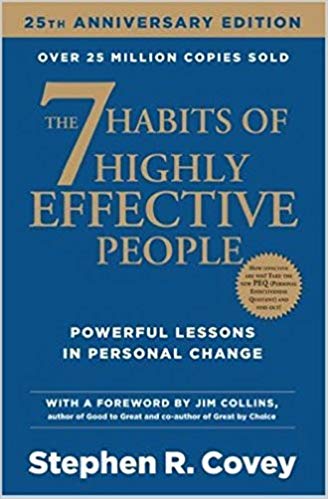

This article is an excerpt from the Shortform summary of "The 7 Habits of Highly Effective People" by Stephen Covey. Shortform has the world's best summaries of books you should be reading.
Like this article? Sign up for a free trial here .
Do you want to reflect back a clear, positive image that emphasizes a person’s potential, or a distorted one based on assumptions, stereotypes, and misunderstandings? This reflection is what we refer to as social mirror theory.
Social mirror theory is the theory that people’s relationships with others create a social mirror that reflects images of themselves back to them and affects their paradigms. This is essentially the concept of self-fulfilling prophecy.
Learn how social mirror theory works and why others’ opinions of you matter.
The Social Mirror and the 7 Habits of Highly Effective People
Self-renewal helps us attain inner peace and stability that improves our effective interdependent relationships. The social mirror theory is about how our actions and attitudes reflect on us, and how they affect others. You’re part of that social mirror, and how you react to others affects how they see themselves.
The Abundance Mentality assures that if you choose to reflect positive images back to the people around you — affirming their proactive behaviors or potentials, attesting to their principles, and holding them to high standards — it doesn’t take away from your own self-image and self-worth in any way. In fact, being a positive social mirror also benefits you because your positive reflection of others supports them in becoming more proactive, effective people with whom you can have productive interdependent interactions.
How Does the Social Mirror Work?
The effects of the social mirrors can be extreme: In one example, a glitch in a school computer in England mislabeled one class of “bright” students as “dumb,” and another class of “dumb” students as “bright.” As they started the school year, the teachers’ views of their students were based primarily on these wrong reports.
Several months later, administrators realized the error and tested the students to find out the impact of the mistake. IQ scores dropped for the students who were wrongly labeled as “dumb,” as teachers had treated them as incompetent, uncooperative, and difficult. But scores went up for the students who’d been labeled “bright”; although those teachers were perplexed at the beginning of the year when the supposedly “bright” students weren’t performing well, the teachers attributed the problem to their teaching methods and changed their approach until the students’ performance reflected the teachers’ expectations. This is a great example of social mirror theory. It turned out, the biggest predictor of students’ performance was not their inherent ability or lack thereof, but teachers’ expectations and how they treated students as a result.
The social mirror theory is an important part of self-renewal. Self-renewal requires social renewal, and balancing self-awareness with awareness and care in relationships. By understanding how your actions impact others, you can focus on imparting positive messages and creating positive interactions.
———End of Preview———

Like what you just read? Read the rest of the world's best summary of "The 7 Habits of Highly Effective People" at Shortform . Learn the book's critical concepts in 20 minutes or less .
Here's what you'll find in our full The 7 Habits of Highly Effective People summary :
- How to prioritize the hundred tasks you have to focus on the one or two that really matter
- The right way to resolve every disagreement and argument
- How to avoid burning out and succeed over 20+ years






